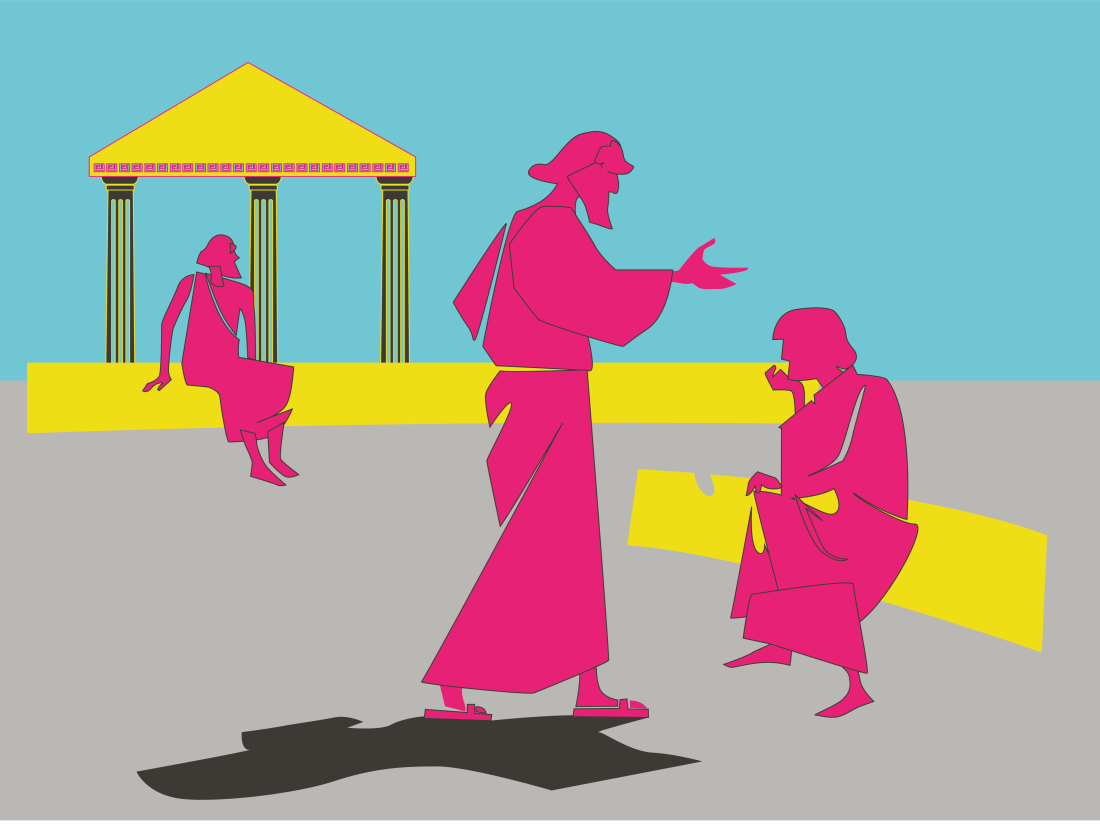Menu


Inspired by the first chapter in Matt’s book ‘Freedom to be happy: The Business Case for Happiness’, read on for a brief history of happiness.

Happiness may feel like a fleeting and insubstantial thing to grasp, however, we’ve proved it to be measurable and tangible. But let’s take a step back and take a look at how some of the best thinkers of all time have grappled with the subject. This list isn’t at all exhaustive, but it should give us plenty to think about.
Way back when, around 90,000 years ago, give or take, our forebearers left Africa and started to create early Homo Sapien cultures. Initially, they were hunter-gatherers, but they started to put down roots and become agricultural societies. This freed up their enormous human brains to accumulate wealth and power. The problem with prehistory is that there aren’t any written records, so while there were doubtless great thinkers in this period, we don’t have any idea what they were thinking, or how happy they were.
Confucius is one of my favourite philosophers, unfortunately, there’s no proof to suggest that he actually said my favourite quote which is regularly attributed to him “You cannot buy happiness, but you have to pay the price”. However, he did write a lot about happiness and believed if you were a good person, you would become a happy person. He also said that living well isn’t worth doing if you’re doing it on your own. To be happy, really to be human, you need to live within the wider group.
This ancient Greek is one of the founding fathers of modern philosophy and how we think about the world. His main gift to humanity is the idea that happiness is the purpose of life. To be a little more specific, he talked a lot about Eudaimonia, a concept which can roughly be translated as wellbeing or happiness. He said that “Eudaimonia is the meaning and the purpose of life, the whole aim and end of human existence.” In short, Aristotle was a man after my own heart!
There are a lot of people who find a lot of solace in the Stoics. I too am one of their super fans. This group of Roman philosophers believed that the key to happiness was accepting what we can and cannot control. This is perhaps best summarised by Epictetus who said: “There is only one way to happiness and that is to cease worrying about things which are beyond the power of our will.” In short, we cannot control events, only how we respond to them. This simple mindset has helped me as an entrepreneur working through the 2008 financial crash, and the 2020 global pandemic.
Perhaps the best known of the thinkers we’re looking at today, Freud is known for his preoccupation with sex (something that actually has scientific links to happiness.) He believed that the cornerstones of humanness and happiness were work and love. Both work and relationships bring us to the fullness of our humanity and our happiness. Another key link Freud makes is that happiness is having your feelings reciprocated. Although Freud somewhat limited his analysis to romantic relationships, we know that work relationships and friendships are also key to happiness.
The problem with Freud and the discipline of psychology which he helped father, is that it’s a relatively negative way of thinking about the world. Essentially, you look at when things go wrong and then try to fix it. The Positive Psychologists of the 1990s, such as Martin Seligman, decided to reverse this approach. Instead, they looked at people who were happy, who were doing well, and tried to replicate these results. Seligman suggested that there are three kinds of happiness, which are experienced in different ways at different times. These are firstly, flow (being in the zone), where you’re completely absorbed in your task. Secondly, meaning, where you build a life which allows you to build upon and use your skills and values. Lastly, there’s pleasure or the happiness that comes from experiences and people in the moment.
You may be wondering what I think happiness is. Well, I’m no philosopher, but what I know to be true is that, for me, happiness is freedom. Whether that be freedom at work or freedom in my relationships. This feeling of freedom helps me to perform at work, and feel happy within my life more generally. Knowing that for me, happiness is freedom, is the reason I became an entrepreneur. It’s the reason I build companies and communities where employees have the freedom to be themselves and thrive. It’s also the reason I called my book ‘Freedom to be Happy’.
As business leaders it’s important to try and create systems and processes to facilitate and encourage employee happiness and wellbeing within your organisations. After all, happiness leads to success! Don’t be afraid to develop your own philosophy and a style that suits you as a leader.
Happiness is contagious. If you lead in a positive and approachable way and role model working practices that encourage healthy work-life balance and happiness you will create a domino effect of workplace happiness – leading to better performance and thriving company cultures.
It’s important to share all sides of your personality and don’t be afraid to share when you feel sad or when you don’t know the answers. If I have learnt anything in my career it is that if you trust your team they will return that trust with interest. Sharing the unfiltered truth is not a sign of weakness but a strength that will bond you and your team closer.
Discover how you can create workplace happiness within your organisation in Freedom to be happy: the business case for happiness.
Related articles
Get in touch for a quick chat with one of our experts to see how we can help you.
Take our benchmark to map where your organisation is now, and where it needs to be.